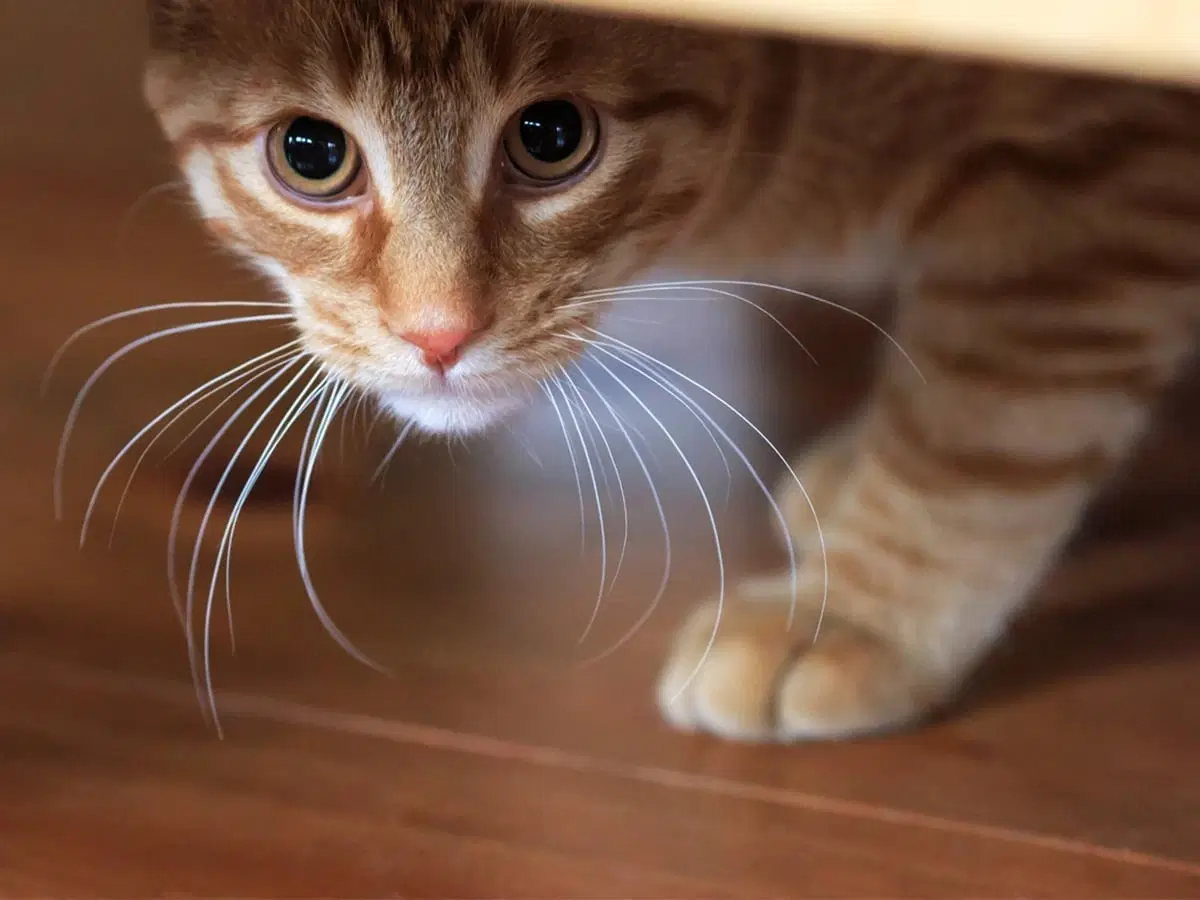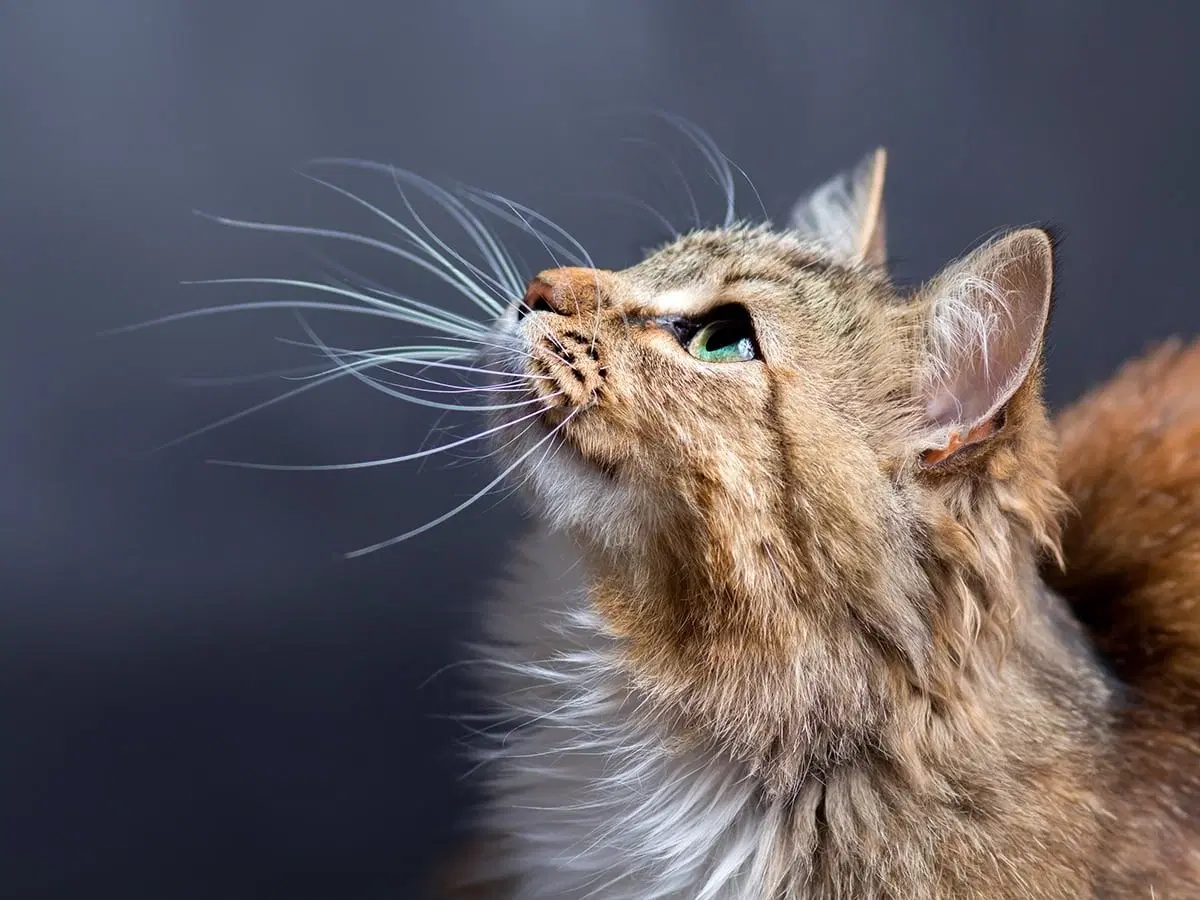Has your usually confident feline friend become a skittish shadow, hiding under the bed and darting away at the slightest sound? Cats are masters of expressing themselves through body language and behavior, and a sudden change in their usual routine can be a sign of something amiss. Let's delve into the reasons why your cat might be acting strange or scared, and explore ways to help them feel safe and secure again.
Common Reasons Why Cats Get Scared
Cats are creatures of habit, and even minor disruptions to their routine can trigger anxiety. Here are some common reasons why your cat might be feeling scared:
New Arrivals: Introducing a new pet, baby, or even houseguest can be stressful for your cat. Their territory feels invaded, and unfamiliar sights, sounds, and smells can be overwhelming.
Environmental Changes: Moving to a new home, renovations in the house, or rearranging furniture can all disrupt your cat's sense of security.
Loud Noises: Fireworks, thunderstorms, or loud music can be frightening for cats with their sensitive hearing.
Unseen Threats: Cats have a keen awareness of their surroundings. Something outside they perceive as a threat, like a stray animal or loud traffic, can cause them to hide or become agitated.
Medical Issues: Underlying health problems can sometimes manifest as behavioral changes. Pain, discomfort, or illness can make your cat feel vulnerable and withdrawn.
Why is My Cat Suddenly Extremely Scared?
Sometimes, a cat's fear can be more intense and sudden. Here are some possible explanations:
Sudden Loud Noises: A loud bang, crash, or unfamiliar sound can cause a cat to become extremely scared.
New Sights or Smells: Something new appearing in their environment or a strange scent, can trigger a fear response.
Negative Experiences: A recent encounter with another animal, a trip to the vet, or even a loud argument can leave your cat feeling traumatized and fearful.
Predatory Threats: Spotting a stray cat or other animal outside the window can cause a strong instinctive fear response in indoor cats.
Soothing Techniques for Anxious Cats
If your cat is scared, creating a safe space for them is crucial. Here are some ways to help them feel calm and comfortable:
Provide a Hiding Spot: Offer a quiet, enclosed space like a cardboard box with a soft blanket where your cat can retreat and feel safe.
Minimize Disruptions: Reduce loud noises or unfamiliar stimuli as much possible.
Maintain Routine: Stick to your cat's regular feeding and playtime schedule to provide a sense of normalcy.
Positive Reinforcement: Offer treats or praise when your cat exhibits calm behavior to encourage relaxation.
Feliway Products: Consider using a Feliway diffuser, which releases calming pheromones that can help reduce anxiety in cats.
Expert Insights From Spot
Many things can cause a cat to act strangely and scared. If your feline friend is exhibiting unusual behavior, a visit to the vet is recommended to rule out any underlying medical conditions. Internal data from Spot Pet Insurance reveals that behavioral conditions in cats can cost an average of $280 per claim. Early intervention from a veterinarian or animal behaviorist can often address these issues and help your cat return to their normal, happy self.
Why is My Cat Acting Out of Character?
A sudden change in your cat's behavior can be concerning. Here are some clues to help you differentiate between a scared kitty and one exhibiting unrelated behavioral issues:
Duration: If the behavior is temporary and subsides once the source of fear is removed, it's likely a scared reaction. Persistent changes might indicate another issue.
Severity: Is your cat mildly skittish or displaying more drastic changes like litter box avoidance, aggression, or excessive vocalization? Severe changes warrant a vet visit.
Physical Signs: Are there any physical signs of illness like weight loss, lethargy, or difficulty using the litter box? These can indicate underlying health problems.
Is My Cat Sick or Just Being Weird?
While some cats are naturally more shy or independent than others, a sudden change in behavior is always worth monitoring. Here's when to consult your veterinarian:
The behavior is persistent: If the strange behavior lasts for more than a few days, a vet visit is recommended.
Physical symptoms are present: Any signs of illness alongside the behavioral change warrant a professional evaluation.
Loss of appetite or lethargy: These can be signs of a serious health issue and require immediate veterinary attention.
Understanding why your cat is acting scared or strange can help you address the root cause and promote their well-being. By creating a safe and calming environment, providing positive reinforcement, and consulting your veterinarian when necessary, you can help your feline friend feel comfortable and confident once again. Remember, a happy cat is a purring cat!
Frequently Asked Questions
Why is my cat acting scared all of a sudden? Cats may suddenly act scared due to unfamiliar noises, changes in their environment, or underlying health issues causing discomfort.
What is the 3 3 3 rule of cats? The 3-3-3 rule means it takes about 3 days for a cat to decompress, 3 weeks to learn your routine, and 3 months to feel fully at home.
Should I be worried if my cat is acting weird? Unusual behavior can be harmless stress or boredom, but if it’s persistent, sudden, or paired with physical symptoms, a vet check is best.
Why is my cat acting dazed and confused? A dazed, confused cat could be experiencing disorientation from illness, toxins, or neurological issues and should be evaluated by a vet promptly.
Additional Tips:
Playtime: Engaging your cat in regular playtime can help alleviate boredom and anxiety.
Patience: Creating a safe and comfortable environment for your cat may take time. Be patient and consistent in your approach.
Veterinary Care: Regular veterinary checkups are essential for maintaining your cat's overall health and identifying any potential medical causes behind their behavior.
Remember, Spot recommends consulting your veterinarian if your cat's strange or scared behavior persists. Early intervention can lead to a happier and healthier feline companion.
Key Takeaway
Sudden changes in your cat’s behavior—whether fear, confusion, or unusual habits—are their way of telling you something isn’t right. By paying attention to the triggers, providing comfort and stability, and seeking veterinary guidance when needed, you can help restore your cat’s sense of security. With patience, care, and early intervention, you’ll not only ease their anxiety but also strengthen the bond you share with your feline companion.

Mostly a tech person, always a pet person. I am dedicated to improving the lives of pets and their humans with technology. Off-duty, I enjoy writing about the misbehaving of computer programs and my two Aussiedoodles, Calvin and Hobbes.













